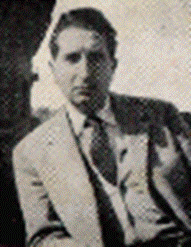Phenomenology nell’Enciclopedia Britannica
Article Free Pass
da Enciclopedia Britannica
TABLE OF CONTENTS
* Introduction
* Characteristics of phenomenology
* Origin and development of Husserl’s phenomenology
* Later developments
* Dissemination of phenomenology
IN OTHER EUROPEAN COUNTRIES
The entire posthumous works of Husserl, as well as his personal library, were transferred to the Catholic University of Leuven (Louvain), in Belgium. Thanks to the initiative of H.L. Van Breda, founder of the Husserl Archives, several scholars worked intensively on the manuscripts for several decades. By the early 21st century, more than 40 volumes of collected works had been published. Van Breda was also the director of thePhaenomenologica series—totaling 200 volumes by the early 21st century—in which the most important publications in the field of phenomenology (taken in a very broad sense) were published. Thus, mainly through Van Breda’s efforts, Leuven became the most important centre for phenomenology. Van Breda also organized international colloquia on phenomenology. The influence of the Belgian philosopher Alphonse de Waelhens, author of Phénoménologie et vérité (1953; “Phenomenology and Truth”) and Existence et signification (1958; “Existence and Meaning”), also bears mentioning.
*
In the Netherlands, Stephan Strasser, oriented particularly toward phenomenological psychology, was especially influential. And in Italy, the phenomenology circle centred around Enzo Paci. The Husserl scholar Jan Patocka, a prominent expert in phenomenology as well as in the metaphysical tradition, was influential in the former Czechoslovakia; in Poland, Roman Ingarden represented the cause of phenomenology; and there were also important representatives in such countries as Portugal, the United Kingdom, South America, Japan, and India.
IN THE UNITED STATES
Phenomenology in the United States lived a rather marginal existence for quite some time, notwithstanding the meritorious journal of Philosophy and Phenomenological Researchfounded by Husserl’s student Marvin Farber, who was also the author of The Foundation of Phenomenology (1943). Later, however, a noticeable change took place, chiefly because of the work of two scholars at the New School for Social Research in New York City: Alfred Schutz, an Austrian-born sociologist and student of human cognition, and Aron Gurwitsch, a Lithuanian-born philosopher. Schutz came early to phenomenology, developing a social science on a phenomenological basis. Gurwitsch, author of Théorie du champ de la conscience (1957; The Field of Consciousness), came to phenomenology through his study of the Gestalt psychologists Adhemar Gelb and Kurt Goldstein. While in Paris, Gurwitsch influenced Merleau-Ponty. The essays on phenomenology published by Gurwitsch in the United States were among the best. His comprehensive knowledge ranged from mathematics, via the natural sciences, to psychology and metaphysics. The work The Phenomenological Movement (1960), by Herbert Spiegelberg, an Alsatian American phenomenologist, was the movement’s first all-encompassing historical presentation.
Phenomenology in other disciplines
Of greater significance is the role of phenomenology outside philosophy proper in stimulating or reinforcing phenomenological tendencies in such fields as mathematics and the biological sciences. Much stronger was its impact on psychology, in which Brentano and the German philosopher and theoretical psychologist Carl Stumpf had prepared the ground and in which the American psychologist William James, the Würzburg school, and the Gestalt psychologists had worked along parallel lines. But phenomenology probably made its strongest contribution in the field of psychopathology (see also mental disorder), in which the German existentialistKarl Jaspers stressed the importance of phenomenological exploration of a patient’s subjective experience. Jaspers was followed by the Swiss psychiatrist Ludwig Binswanger and several others. The phenomenological strand was also very pronounced in American existentialpsychiatry and affected sociology, history, and the study of religion. More recently, phenomenology has influenced research in some areas of cognitive science.
Walter Biemel

Commenti recenti